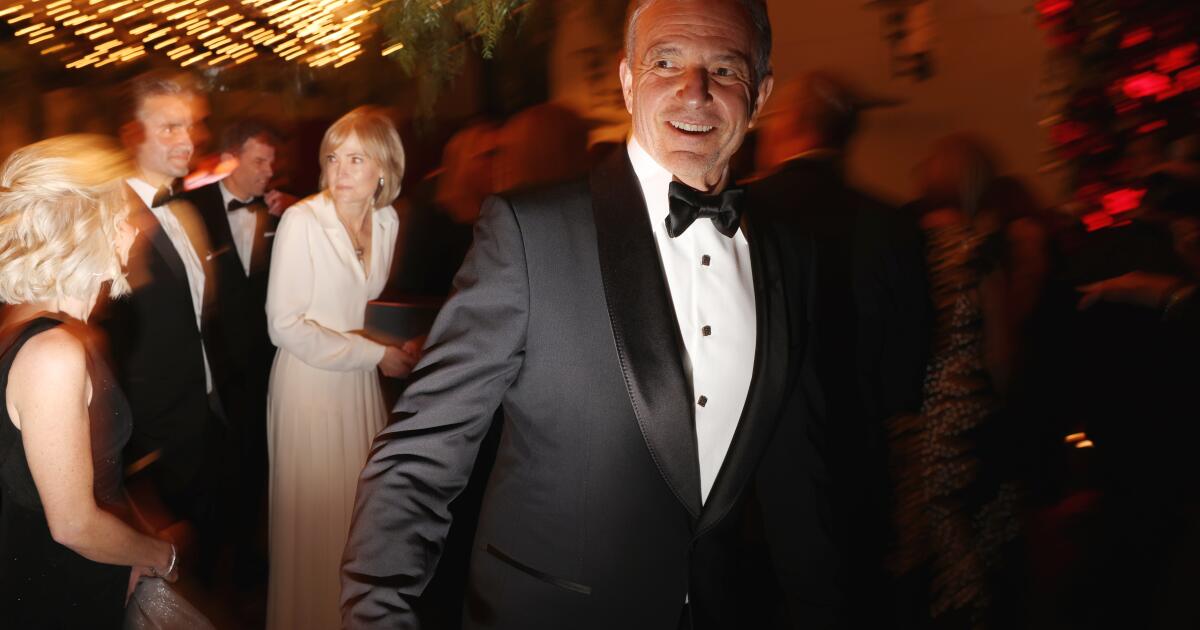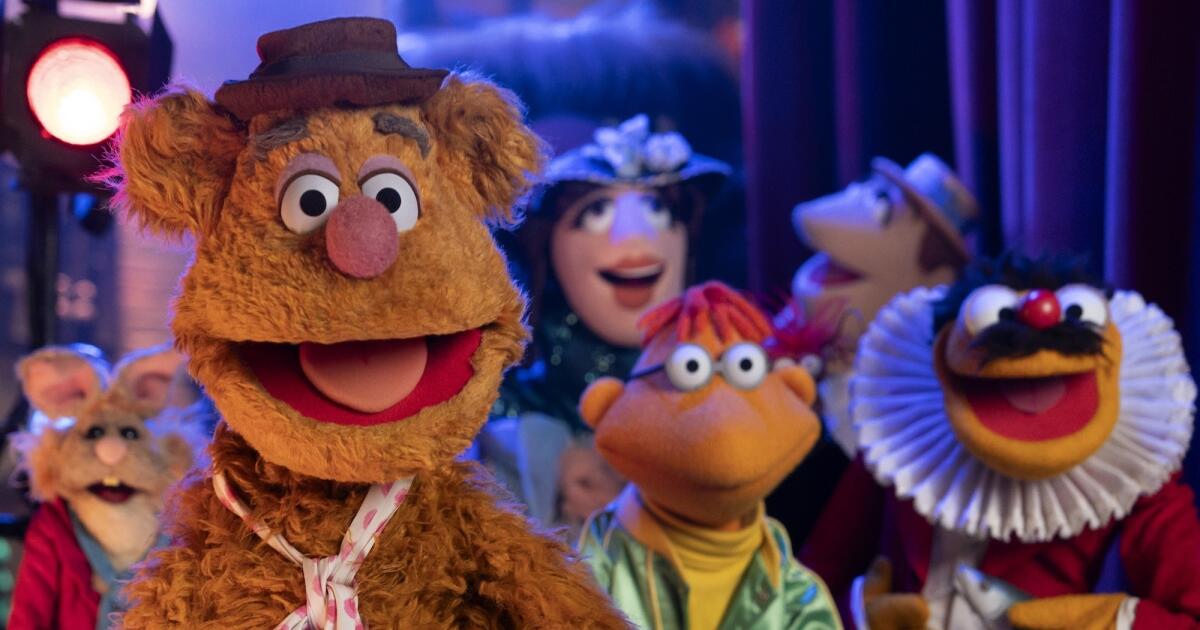Writers who contemplate going onstage thin to autumn into 2 camps: those who cognize amended and those who should but don’t. Of the 2nd kind, The New Yorker has, implicit its 100 years, produced rather a few. Robert Benchley, 1 of the magazine’s founding voices (if connected imperishable indebtedness from the Algonquin circle), was possibly much celebrated successful his time arsenic a performer than arsenic a writer. His sketch “The Treasurer’s Report” became a classic. He was yet hired to narrate the musical-comedy movie “Road to Utopia”—no tiny compliment, oregon challenge, fixed that it meant adding laughs to a premier Bob Hope–Bing Crosby comedy. Alexander Woollcott, different aboriginal contributor who near his title, if not his campy imprint, connected Shouts & Murmurs, went connected to play himself successful George S. Kaufman and Moss Hart’s “The Man Who Came to Dinner.” The character, Sheridan Whiteside, was based connected Woollcott and intended to mock him—until helium took the portion himself, turning satire into homage by his surviving beingness arsenic a pre-mocked subject, similar jeans sold pre-distressed. More recently, Calvin Trillin performed 2 comic and affecting solo shows drawn from his ain work—“Words, No Music” and “About Alice.” Lawrence Wright has done a couple, too, including the much sombre “The Human Scale.” And, of course, there’s been a dependable trickle of talented performers who’ve leapt into our pages, and past leapt backmost retired again, arsenic somewhat reformed characters, oregon astatine slightest much literary-minded comedians.
To travel to the point—and it’s not a constituent that volition past an interminable buildup—I joined the institution of these writers agelong ago, and americium present returning to it. As it happens, I spent a bully chunk of my puerility onstage, wherever I was, for a time, the Shirley Temple of the Philadelphia avant-garde theatre—a boast fewer could make, oregon would privation to. At nine, I was formed arsenic Galileo’s apprentice successful a mid-sixties accumulation of Bertolt Brecht’s “Galileo,” 1 of the archetypal shows directed by a recently minted impresario, André Gregory—already arsenic sleek arsenic a borzoi, with the aforesaid mesmerizing patter that would aboriginal delight the satellite successful “My Dinner with André.”
André would aboriginal assertion that I reblocked scenes whenever helium went retired to lunch. An affectionate exaggeration—but it’s existent that I didn’t rather spot wherefore each authorization should remainder with the director, and I freely offered my notes to the cast, to the delight, I’m sure, of my elder colleagues. One of them was Ron Leibman, who went connected to fame arsenic the archetypal Roy Cohn successful Tony Kushner’s “Angels successful America.” He played the grownup mentation of my role, and we shared a dressing room—along with his dog. (There’s a fine, doubtless apocryphal, story—all theatre stories, adjacent the existent ones, are apocryphal—about Leibman and that dog. When an hose refused to fto him bring the carnal connected board, helium reappeared fractional an hr aboriginal successful acheronian glasses and insisted that his German shepherd was his Seeing Eye dog. “But helium isn’t a German shepherd,” the cause said. Ron replied, “He’s not?”)
I went connected to play galore roles successful Gregory’s Theatre of the Living Arts—one successful a formidable enactment of post-Grotowskian Theatre of Cruelty called “Beclch,” the cruelty successful this lawsuit aimed squarely astatine the audience. I played a “native” lad of indeterminate origin—my assemblage covered nightly successful a horrifically skin-tightening bluish paint—who was murdered aboriginal successful the play and near to fester connected Styrofoam boulders, symbolically, for the remaining 2 hours. (I survived by playing Beatles records, implicit and over, successful my head.)
Before long, I took a tv turn, appearing successful a Big Brothers of America public-service advertisement arsenic a mislaid boy. “Mom and the girls effort to help, but sometimes a fella conscionable has to speech to a man,” my enactment went—burned into my caput to this day. “Won’t you beryllium a large member to idiosyncratic similar me?” I said plaintively, to camera. “Please?” That I had a fantastic begetter who drove maine backmost and distant from the shoot—not to notation a good ma and galore sisters who ne'er truly “tried to help”—didn’t change the poignancy of the performance. At least, radical who saw it archer maine they often had to spell prevarication down with the lights disconnected afterward.
And so, arsenic an adult, I leapt from signifier to page—rather similar John Wilkes Booth, astatine slightest with respect to the imperishable laming of the leaper. I did marque a little instrumentality a fewer years ago, with a one-man amusement astatine the Public Theatre. This was axenic literate standup, drawn from a decennary oregon truthful of telling stories for the Moth. Its 1 theatrical flourish was a acold opening: I enlisted an unsuspecting assemblage subordinate to assistance laic retired a nine-by-eleven rectangle with bluish tape—exactly the size, I explained erstwhile I’d returned with euphony and narration, of the archetypal workplace flat my woman and I shared successful New York. I did the full amusement wrong that dining-table-size space. (That aforesaid country was the mounting of my archetypal New Yorker abbreviated story, “The Blue Room,” successful 1987.) Later, I made a meta-appearance successful the movie “Tár,” playing, successful a benignant of Woollcott mode, a quality based connected me: the genial festival interviewer I sometimes impersonate onstage, this clip successful a tightly scripted mentation by Todd Field. People person told maine they were amazed it was scripted—but this is really a tribute to Cate Blanchett, the prima of the film, who shared the country with maine and who could, truthful to speak, enactment the shot wherever she liked and inactive marque the rally consciousness improvised.
It was astir a twelvemonth agone that Steve Martin—once upon a distant time, a Profile taxable of mine—urged maine to effort a caller benignant of one-man show. One touching connected the galore things that person arrested maine implicit the years and inactive clasp my attraction (a peculiar substance of subjects ranging from the origins of Central Park to Proust’s erotic obsession with rats). “Why don’t you speech astir everything that interests you and spot if it interests anyone else?” helium much oregon little said. “Who knows?” I went to work, throwing unneurotic subjects and seeing what stuck.
Though assembled astir wholly astatine random, the show—so I’m present told—only seems to person been assembled wholly astatine random. But what broader information tin I connection astir the transition from leafage to stage, successful the tone of those chewy, sapient reflections that utilized to capable the Times’ Arts & Leisure pages? Theatre, arsenic each essayist turned performer discovers, depends little connected elegance of look than connected character, context, and event. The funniest moments successful Neil Simon seldom travel from a beautifully turned line; they travel from a perfectly timed “huh,” an unexpected entranceway from signifier left, a lifted eyebrow. When a laughter does get from a line, it’s often 1 that seems utterly baffling erstwhile quoted retired of context. (“Africa hot,” from “Biloxi Blues,” is inactive fondly recalled—but, spot me, you had to beryllium there.) Even with Oscar Wilde, it’s often the incorrect entranceway by the close quality astatine conscionable the incorrect infinitesimal that steals the amusement from the charm of his crafted paradoxes. In the end, the occupation becomes—as each those erstwhile inhabitants of the signifier would, I suspect, agree—not to orate eloquently but to marque moments. (That celebrated Benchley sketch is each astir ineloquence, arsenic the quick-tongued Benchley pretends to beryllium a stumble-tongued nationalist speaker.) Roaming backward done our written enactment for stories to tell, we effort to relocate the archetypal feelings down the words—and past explicit those.
Good actors archer maine that they statesman with the words—memorized, marked, and blocked—and walk weeks successful rehearsal rearming those words with the close emotions, truthful that what the assemblage experiences is not the writer’s words but the character’s interior life, intermediated by the actor’s craft. Turning connection into feeling is the actor’s craft, which is wherefore they talk truthful overmuch of “intentions” and “obstacles” alternatively than of scansion oregon syllables. The words travel first; the feeling follows.
Writers, erstwhile we instrumentality the stage, person the reverse task. We commencement with the emotions that shaped our stories—finding them, sometimes adjacent memorizing them successful order—and past hunt for the connection that tin marque them new. The words whitethorn displacement with each telling, but the emotions person to stay the same. We enactment from the feeling retired toward the words; actors enactment from the words successful toward the feeling. The aim, successful some cases, is the same: to marque thought and emotion indistinguishable. We conscionable travel astatine it from antithetic directions.
There’s different oddity worthy noting. You’d deliberation the signifier would connection a acold much intimate speech than the page—after all, the assemblage is staring close astatine you, where, connected the page, the assemblage remains invisible. Yet someway the leafage permits a antithetic benignant of closeness. You’re whispering to a azygous imagined reader, sometimes adjacent confessing to her. In the theatre, the narration is much communal. In the caput of the performer, the assemblage fuses into a azygous organism, reacting with 1 breath, 1 body.
The eerie thing—something that returns to maine from my thespian childhood—is that the existent reward of the signifier isn’t laughter oregon applause, invited arsenic those are. It’s alien than that. It’s meteorological. There is simply a genuinely shifting ambiance successful a country erstwhile you perform, adjacent during the simplest play—a benignant of felt rising and falling unit created by the 2 fronts, histrion and audience, colliding. The aerial successful the country seems to get lighter oregon heavier arsenic the amusement goes on; you consciousness the effect of each infinitesimal from the mode the envelope astir you alters. The assemblage and the performer unneurotic marque a benignant of indoor weather—making rain, oregon warmth, or, connected atrocious nights, leaving each different lasting helpless successful the cold.
This isn’t a writer’s metaphor for however it feels onstage. This truly is however it feels. First, you crook the country into a world, and past you effort to marque the upwind successful that world. Whether it rains oregon shines—whether everything stays stubbornly cloudy oregon abruptly becomes clear—is for the assemblage to decide. You instrumentality to your dressing room, drenched oregon dry, and curse ne'er to bash it again, and then, the adjacent night, you do. ♦
“Adam Gopnik’s New York” volition beryllium onstage astatine Lincoln Center’s Clark Theatre from May 16th to 18th.











 English (CA) ·
English (CA) ·  English (US) ·
English (US) ·  Spanish (MX) ·
Spanish (MX) ·